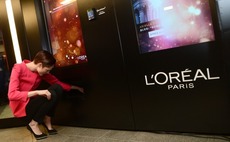
Headland offers toymaker succession solution
Big eyed and rosy cheeked, Kong Suni the potty-training baby doll is the must-have toy in South Korea this year. Her ability to eat, fill her diaper and pass wind has attracted headlines both home and abroad. The doll is a creation of South Korean firm YoungToys, a company whose innovative marketing approach inspired Headland Capital Partners to acquire a 96.5% stake for KRW60 billion ($55 million).
Korea's toy industry is attractive because it is expected to grow in parallel with rising GDP per capita, yet barriers to entry are increasingly significant and a degree of consolidation is like...
Latest News
Asian GPs slow implementation of ESG policies - survey
Asia-based private equity firms are assigning more dedicated resources to environment, social, and governance (ESG) programmes, but policy changes have slowed in the past 12 months, in part due to concerns raised internally and by LPs, according to a...
Singapore fintech start-up LXA gets $10m seed round
New Enterprise Associates (NEA) has led a USD 10m seed round for Singapore’s LXA, a financial technology start-up launched by a former Asia senior executive at The Blackstone Group.
India's InCred announces $60m round, claims unicorn status
Indian non-bank lender InCred Financial Services said it has received INR 5bn (USD 60m) at a valuation of at least USD 1bn from unnamed investors including “a global private equity fund.”
Insight leads $50m round for Australia's Roller
Insight Partners has led a USD 50m round for Australia’s Roller, a venue management software provider specializing in family fun parks.







